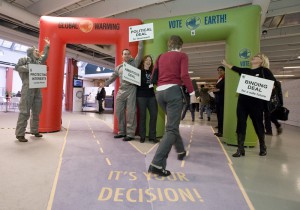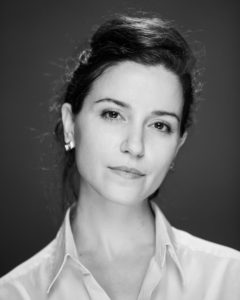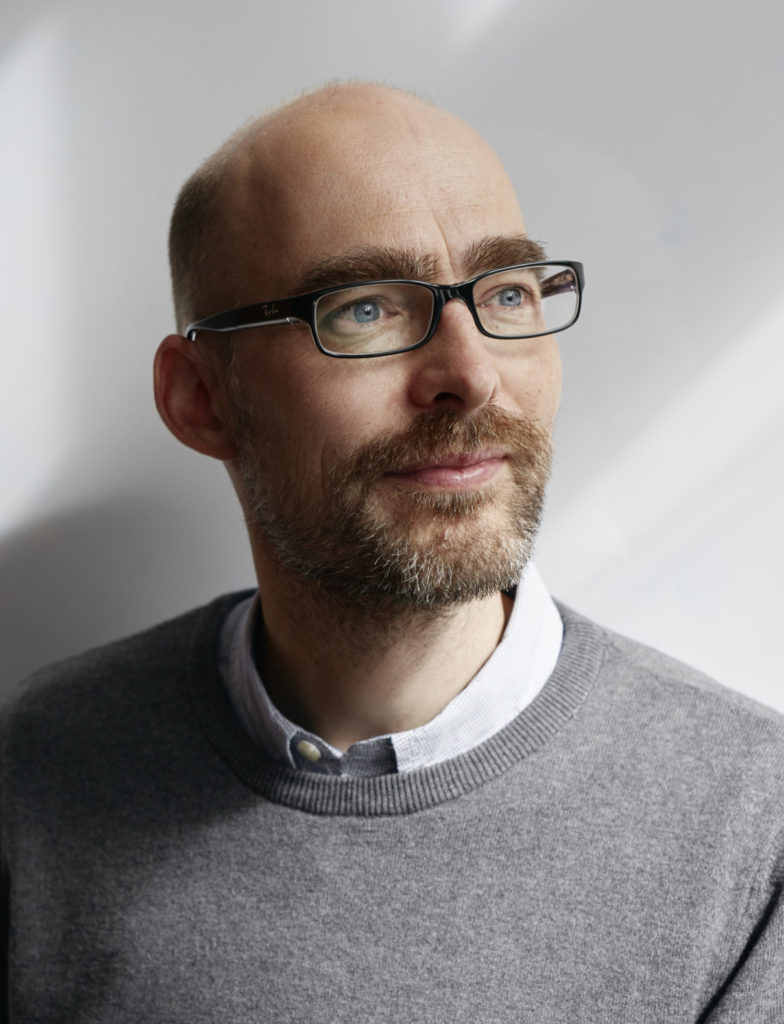
Michael Brüggemann is Professor of Communication Research, Climate and Science Communication at the University of Hamburg. He is also the Principal Investigator at the interdisciplinary Cluster of Excellence „Climate, Climatic Change, and Society“ (CliCCS) 2019-2025. His research explores the transformations of journalism, political and science communication from a comparative perspective. posts by Michael I website and contact
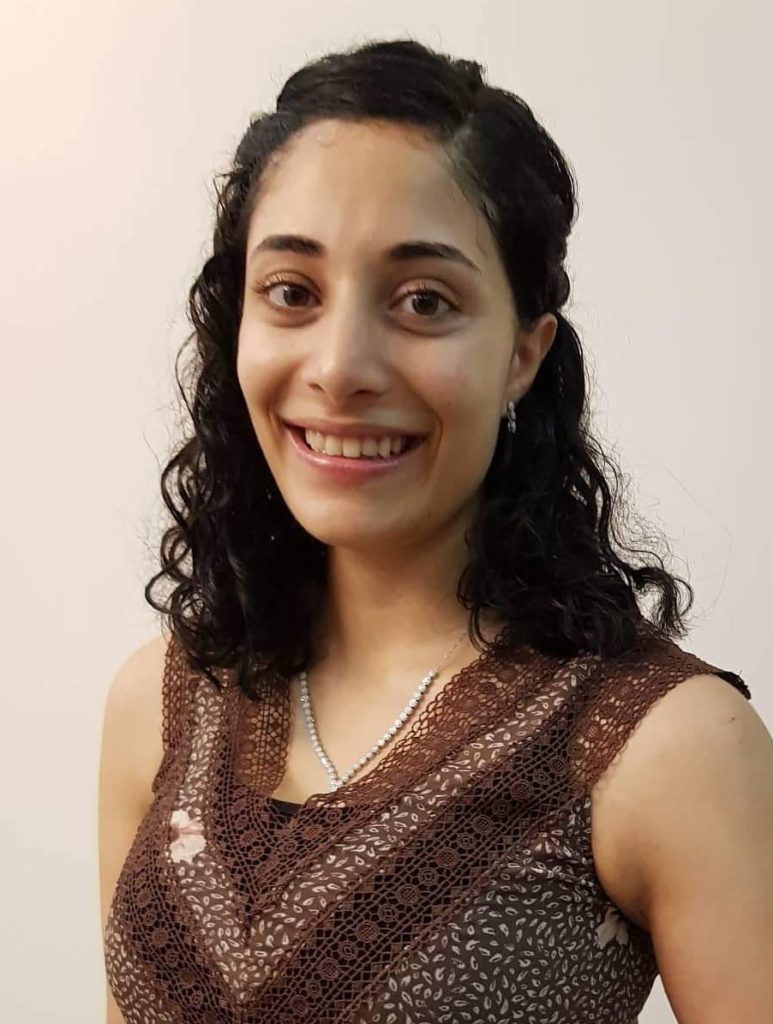
Shorouk Elkobros is an aspiring science communicator and storyteller. She is pursuing a Masters in “Integrated Climate System Sciences” at the University of Hamburg’s climate cluster CliSAP. Previously, she had a Bachelor in Physics and professional experience in communications. all posts by Shorouk
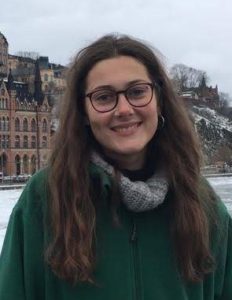 Ella Karnik Hinks is currently studying her Masters in Integrated Climate System Sciences at the University of Hamburg. Having achieved her Bachelors in Astrophysics, she is interested in Science Communication, and the interface between scientific knowledge and the public. all posts by Ella
Ella Karnik Hinks is currently studying her Masters in Integrated Climate System Sciences at the University of Hamburg. Having achieved her Bachelors in Astrophysics, she is interested in Science Communication, and the interface between scientific knowledge and the public. all posts by Ella
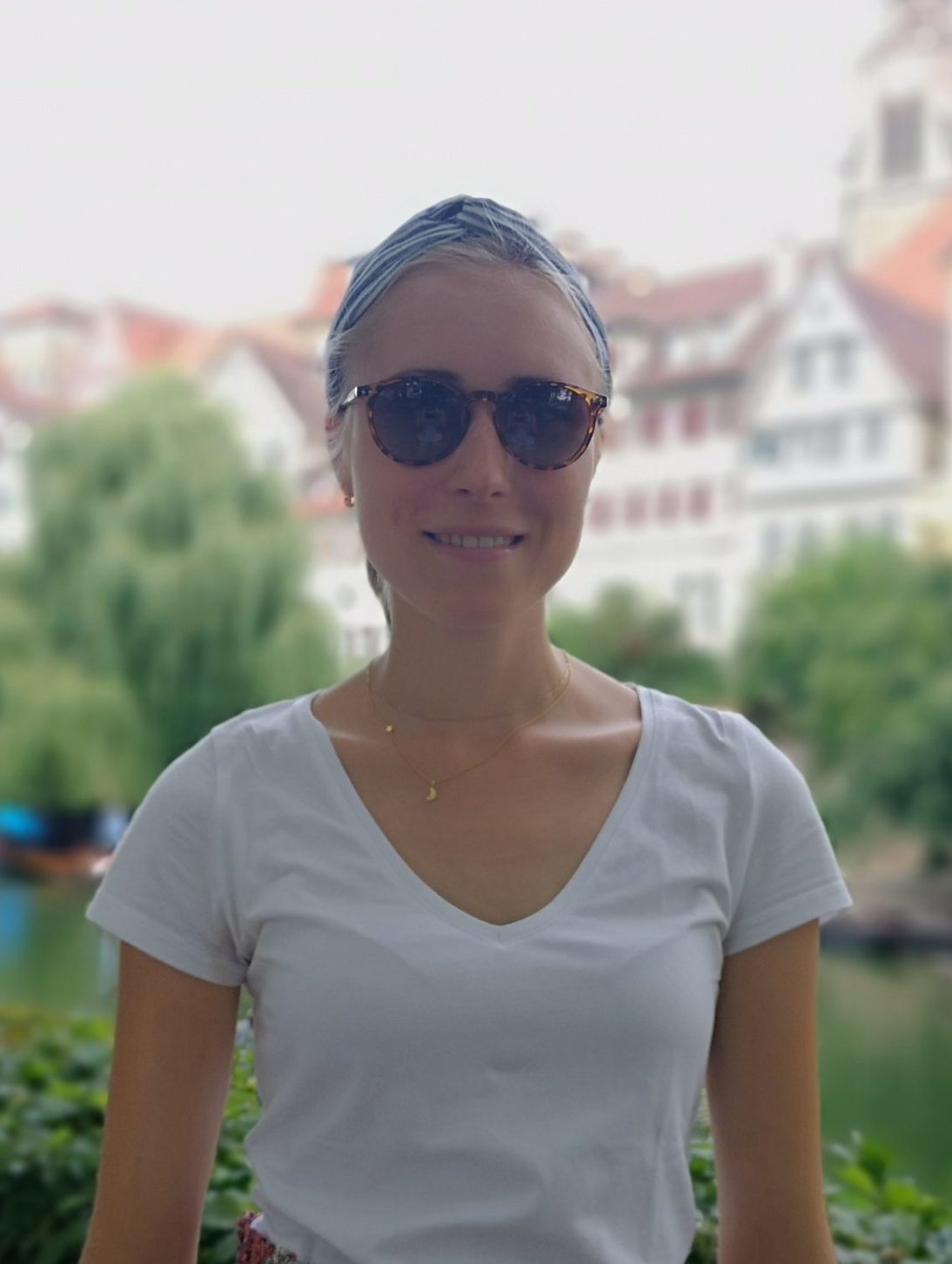 Susan Jörges is a student of the Master Journalism and Communication Studies at the University of Hamburg with a Bachelor in Social Sciences. As a student assistant, she is a member of Professor Brüggemann’s team and publishes articles for different media. She is interested in issues about sustainability, health and climate change. all posts by Susan
Susan Jörges is a student of the Master Journalism and Communication Studies at the University of Hamburg with a Bachelor in Social Sciences. As a student assistant, she is a member of Professor Brüggemann’s team and publishes articles for different media. She is interested in issues about sustainability, health and climate change. all posts by Susan
 Hadas Emma Kedar is a PhD student and research assistant at the CLICCS project with Prof. Dr. Brüggemann. She is interested in news reporting in times of crisis, and in her research she compares TV news reporting of Covid-19 in different countries. She has been transitioning to social sciences after bacheloring and mastering in the humanities, namely in media art. Professionally, she taught media art in different institutions and volunteered as a news presenter for the ‘Israeli Social TV’. all posts by Hadas
Hadas Emma Kedar is a PhD student and research assistant at the CLICCS project with Prof. Dr. Brüggemann. She is interested in news reporting in times of crisis, and in her research she compares TV news reporting of Covid-19 in different countries. She has been transitioning to social sciences after bacheloring and mastering in the humanities, namely in media art. Professionally, she taught media art in different institutions and volunteered as a news presenter for the ‘Israeli Social TV’. all posts by Hadas
 Joana Kollert is an aspiring journalist currently pursuing a Masters in “Integrated Climate System Sciences” at the University of Hamburg’s climate cluster CliSAP and working as a student assistant in Prof. Brüggemann’s team. Before that, she studied Oceanography at the University of Southampton, UK. all posts by Joana
Joana Kollert is an aspiring journalist currently pursuing a Masters in “Integrated Climate System Sciences” at the University of Hamburg’s climate cluster CliSAP and working as a student assistant in Prof. Brüggemann’s team. Before that, she studied Oceanography at the University of Southampton, UK. all posts by Joana
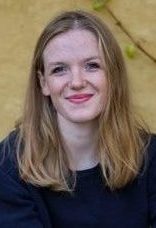 Clara Nack is a student of the Erasmus Mundus Master of Journalism and Media within Globalisation at the University of Hamburg. Previously she has studied Journalism in Denmark and Ireland and graduated with a bachelor in Comparative Literature from the FU Berlin. As a junior researcher she is now a member of Professor Brüggemann’s team, freelancing for different media and the Staatliche Museen zu Berlin. Clara is interested in sustainability, gender equality, digitisation and cultural institutions. all posts by Clara
Clara Nack is a student of the Erasmus Mundus Master of Journalism and Media within Globalisation at the University of Hamburg. Previously she has studied Journalism in Denmark and Ireland and graduated with a bachelor in Comparative Literature from the FU Berlin. As a junior researcher she is now a member of Professor Brüggemann’s team, freelancing for different media and the Staatliche Museen zu Berlin. Clara is interested in sustainability, gender equality, digitisation and cultural institutions. all posts by Clara
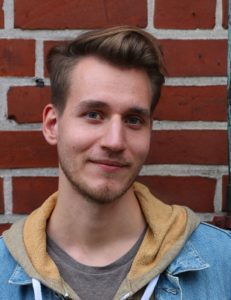 Christopher Pavenstädt is a PhD student and research assistant at the DFG-cluster CLICCS at the University of Hamburg. His interests include political discourse, climate change/sustainability and social movements. In his research, he focusses on the transformative role of future-related narratives at the interface between climate movements, science and political actors for German and US-climate politics. all posts by Christopher
Christopher Pavenstädt is a PhD student and research assistant at the DFG-cluster CLICCS at the University of Hamburg. His interests include political discourse, climate change/sustainability and social movements. In his research, he focusses on the transformative role of future-related narratives at the interface between climate movements, science and political actors for German and US-climate politics. all posts by Christopher
 Louisa Pröschel is currently doing her Master’s degree in Journalism and Communication Studies at the University of Hamburg. Prior to that, she obtained a Bachelor’s degree in Political Science. She is also working as a research assistant at the Leibniz Institute for Media Research | Hans-Bredow-Institute and her prime field of interest is Science Communication. all posts by Louisa
Louisa Pröschel is currently doing her Master’s degree in Journalism and Communication Studies at the University of Hamburg. Prior to that, she obtained a Bachelor’s degree in Political Science. She is also working as a research assistant at the Leibniz Institute for Media Research | Hans-Bredow-Institute and her prime field of interest is Science Communication. all posts by Louisa
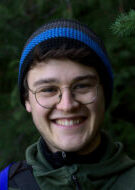 Felix Schaumann is a PhD candidate at the Max Planck Institue for Meteorology and the University of Hamburg. He works on climate-economic issues, and is thereby interested in most issues that are at the intersection of climate change science and society at large. A special focus of his work is on models that aim to connect natural science and economics in the context of climate change, such as integrated assessment models. all posts by Felix I website and contact
Felix Schaumann is a PhD candidate at the Max Planck Institue for Meteorology and the University of Hamburg. He works on climate-economic issues, and is thereby interested in most issues that are at the intersection of climate change science and society at large. A special focus of his work is on models that aim to connect natural science and economics in the context of climate change, such as integrated assessment models. all posts by Felix I website and contact
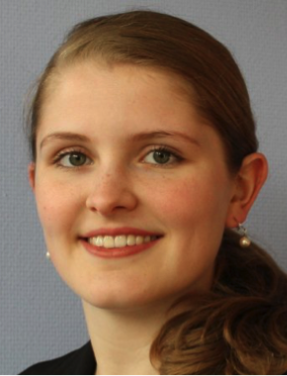 Fenja De Silva-Schmidt is coordinating the science communication project at the Hamburg Research Academy. Previously, she worked as a research assistant and received her PhD from the chair of Prof. Brüggemann in Hamburg. During Paris’ climate conference, she coordinated the “Down to Earth” study about the audience’s perceptions of news from the conference. Aside from her scientific activities, Fenja has been working as a freelance journalist. She tweets as @Fen_Ja. all posts by Fenja
Fenja De Silva-Schmidt is coordinating the science communication project at the Hamburg Research Academy. Previously, she worked as a research assistant and received her PhD from the chair of Prof. Brüggemann in Hamburg. During Paris’ climate conference, she coordinated the “Down to Earth” study about the audience’s perceptions of news from the conference. Aside from her scientific activities, Fenja has been working as a freelance journalist. She tweets as @Fen_Ja. all posts by Fenja
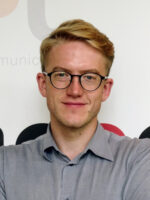
Robin Tschötschel is a postdoctoral researcher in the team of Michael Brüggemann. His research interests lie predominantly in the area of public communication about political and societal aspects of climate change. His focus lies on the nexus of social justice, identity, and climate change, aiming to explore how societies can shape sustainable and just transitions.
all posts by Robin I
website
Former contributing authors
Max Boykoff, Associate Professor in the Center for Science and Technology Policy, University of Colorado-Boulder
Anabela Carvalho, Associate Professor at the Dep. of Communication Sciences, University of Minho, Portugal
Elisabeth Eide, professor of journalism at HiOA (Høgskolen i Oslo og Akershus), Oslo, writer and journalist
Rebecca Froese, Masters Student of “Integrated Climate System Sciences” at the University of Hamburg’s climate cluster CliSAP
Reiner Grundmann, Professor of Science and Technology Studies at the University of Nottingham (UK)
Jonas Kaiser, Research Associate at Zeppelin University Friedrichshafen, Fellow at Alexander von Humboldt Institute for Internet and Society
Bastian Kießling, research assistant at the chair of Prof. Neverla in Hamburg, DFG-project “Public Discourses on Climate Change
Manuel Kreutle, Masters student in “Integrated Climate System Sciences” at the University of Hamburg’s climate cluster CliSAP, student assistant in Prof. Brüggemann’s team
Bienvenido León, associate professor of science journalism and director of the Research Group on Science Communication at the University of Navarra (Spain)
Ines Lörcher, research assistant at the chair of Prof. Brüggemann in Hamburg
Gesa Luedecke, postdoc at the CIRES Center for Science and Technology Policy Research at the University of Colorado in Boulder
Julia Mandil, Brazilian journalist and Erasmus Mundus MA student in Journalism and Media Across Cultures in Hamburg
Joost de Moor, PhD in political science at the University of Antwerp
Brigitte Nerlich, Professor of Science, Language and Society at the University of Nottingham
Sara Nofri, researcher, an entrepreneurial linguist, a consultant, media analyst, family person and foodie
Feilidh O’Dwyer, journalist working towards his MA in Journalism and Globalisation at the University of Hamburg
Alan Ouakrat, associate researcher at CARISM, the Center of Analysis and Interdisciplinary Research on Media (University Panthéon-Assas, Paris), postdoc at the CREM, Research Centre on Mediations (University of Lorraine)
James Painter, Director of the Journalism Fellowship Programme for the Reuters Institute for the Study of Journalism at Oxford University
Warren Pearce, Research Fellow on the University of Nottingham’s Making Science Public programme
Adrian Rauchfleisch, Research Associate at the Department of Science, Crisis & Risk Communication at the Institute of Mass Communication and Media Research (IPMZ), University of Zurich
Markus Rhomberg, professor and chair of political communication at Zeppelin University Friedrichshafen, Germany
Alexander Sängerlaub, researcher and journalist in Berlin, founder and chief editor of the utopian political magazine Kater Demos
Anne Schmitz, master student in Journalism and Mass Communication at the University of Hamburg
Felix Schreyer, master student in Integrated Climate Sciences at the University of Hamburg
Hans von Storch, director emeritus of the Institute of Coastal Research of the Helmholtz Zentrum Geesthacht (HZG), professor at the University of Hamburg and professor at the Ocean University of China (Qingdao)
Felicitas Vach, master student in Journalism and Communication at the University of Hamburg
Stefanie Walter, Post-Doc at the Chair of Communication Research, Climate and Science Communication of Prof. Brüggemann at the University of Hamburg
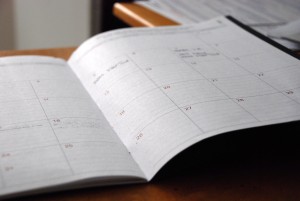 von Fenja De Silva-Schmidt
von Fenja De Silva-Schmidt


 Ella Karnik Hinks is currently studying her Masters in Integrated Climate System Sciences at the University of Hamburg. Having achieved her Bachelors in Astrophysics, she is interested in Science Communication, and the interface between scientific knowledge and the public.
Ella Karnik Hinks is currently studying her Masters in Integrated Climate System Sciences at the University of Hamburg. Having achieved her Bachelors in Astrophysics, she is interested in Science Communication, and the interface between scientific knowledge and the public.  Susan Jörges is a student of the Master Journalism and Communication Studies at the University of Hamburg with a Bachelor in Social Sciences. As a student assistant, she is a member of Professor Brüggemann’s team and publishes articles for different media. She is interested in issues about sustainability, health and climate change.
Susan Jörges is a student of the Master Journalism and Communication Studies at the University of Hamburg with a Bachelor in Social Sciences. As a student assistant, she is a member of Professor Brüggemann’s team and publishes articles for different media. She is interested in issues about sustainability, health and climate change.  Hadas Emma Kedar is a PhD student and research assistant at the CLICCS project with Prof. Dr. Brüggemann. She is interested in news reporting in times of crisis, and in her research she compares TV news reporting of Covid-19 in different countries. She has been transitioning to social sciences after bacheloring and mastering in the humanities, namely in media art. Professionally, she taught media art in different institutions and volunteered as a news presenter for the ‘Israeli Social TV’.
Hadas Emma Kedar is a PhD student and research assistant at the CLICCS project with Prof. Dr. Brüggemann. She is interested in news reporting in times of crisis, and in her research she compares TV news reporting of Covid-19 in different countries. She has been transitioning to social sciences after bacheloring and mastering in the humanities, namely in media art. Professionally, she taught media art in different institutions and volunteered as a news presenter for the ‘Israeli Social TV’. 

 Christopher Pavenstädt is a PhD student and research assistant at the DFG-cluster CLICCS at the University of Hamburg. His interests include political discourse, climate change/sustainability and social movements. In his research, he focusses on the transformative role of future-related narratives at the interface between climate movements, science and political actors for German and US-climate politics.
Christopher Pavenstädt is a PhD student and research assistant at the DFG-cluster CLICCS at the University of Hamburg. His interests include political discourse, climate change/sustainability and social movements. In his research, he focusses on the transformative role of future-related narratives at the interface between climate movements, science and political actors for German and US-climate politics. 




